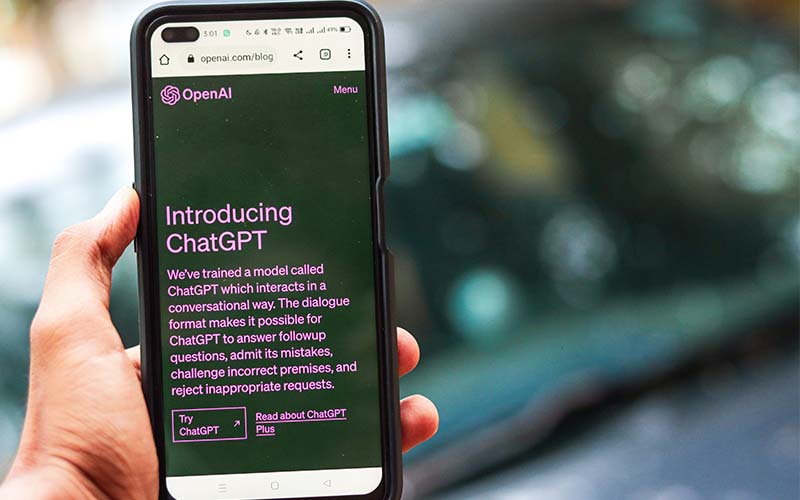

As per a report by the World Economic Forum, about 85 million jobs worldwide in Medium and big firms across 15 industries and 26 economies will be disrupted by automation and a new division of labor between people and machines by 2025.
Also, a study by McKinsey & Company, showed that 50% of current work can be replaceable with technology.
So, with the arrival of AI Chatbots like ChatGPT and BARD, it is quite natural to think about the potentiality if AI bots can replace content writers.

The idea of AI is really simple, and its ability to function depends on manufactured intelligence rather than natural intellect like that of humans. So, computers and machines may learn to reason, solve problems, and take a variety of responsive behaviors. The fact that AI can learn as it goes and become smarter based on what it is learning is what some people find frightening about it.
Nowadays, AI is used in a variety of industries. For instance, intelligent machines can accelerate production processes by efficiently completing jobs faster than a human. Hence, an essential notion in AI is automation, which refers to the automatic completion of activities like data entry.
Who would have thought a century ago that a machine could perform complex quantum calculations? So, there is surely a lingering chance that AI can replace content writers.
But, as reported by the Times of India, looking at the current scenario, Open AI’s ChatGPT provides content without the brand's company requirements, content guidelines and tone of voice. Furthermore, in most cases, the content created is full of plagiarism. Hence, it is unlikely that these AI Chatbots will replace human writers in the upcoming few years.
Presently, the reasons why AI can’t replace human writers include -
AI doesn't comprehend corporate goals or how to accomplish them. It is unaware of the reader's position in the buyer's journey or the direction the content is intended to move them in. For instance, the message should be tailored if the company wishes to take the customer from awareness to action.
AI is incapable of comprehending what makes people think. Additionally, you must appeal to emotions while writing a copy if you want it to be persuasive. Therefore, your writing must compel readers on an emotional level and not only be dry and factual, and currently, AI can’t do that.
The crowdsourcing, fact-checking, and research that go into effective writing cannot be replaced by AI in any way, presently. It can only make reference to the books and articles that have previously been written by people.
AI doesn't comprehend the purpose, culture, and values of your brand. Sometimes you need to follow your instincts and years of brand experience. Even when everything is adhering to brand requirements, you can still tell when something is off.
Even if artificial intelligence is becoming ever more intelligent than humans in many areas, there are some attributes it cannot replace. For instance, human-centric characteristics like empathy, culture, and morals cannot be replicated by AI. Even though it has enormous processing power and has read 10% of the internet, it is unable to relate to people based on context.
AI is already permeating the writing industry, and some believe this will result in considerably faster content production and more efficient and cost-effective fields like marketing.
Here one example is Natural Language Processing (NLP) which is a technique used to produce original writing and offer cogent information. By making use of examples and guidelines, it attempts to emulate human writing. Furthermore, NLP is already used in some ways by word processors, which attempt to anticipate your next words or spot grammatical mistakes.
In terms of the future of content writing and copywriting, how humans and AI writers will collaborate is more important than whether any will exist at all. To develop content ideas at scale, content writers could leverage AI writing assistance and concentrate on their strengths, creativity and emotions.
But, these AI copywriters shouldn't be considered a substitute for real copywriters. Rather, they only help the content creators by removing writer's block and generating mass quantities of content ideas.
Hence, AI has a promising future and will advance alongside humankind. Humans will continue to be in charge of the process, but with the assistance of AI assistants, so that the balance between humans and AI is also maintained.
Although AI has shown burgeoned growth and has unmatched potential to learn and evolve, currently, it seems unlikely that AI will replace the job of a content writer. However, AI can assist content writers to churn out more words in a limited time, but its limitation of feeling emotion is the primary reason behind its irreplaceability.
We hope you enjoyed some of that perceptive content from Team BUSFAM, a leading social media marketing agency.
Wait for the next episode only on #MarketSpotlights!